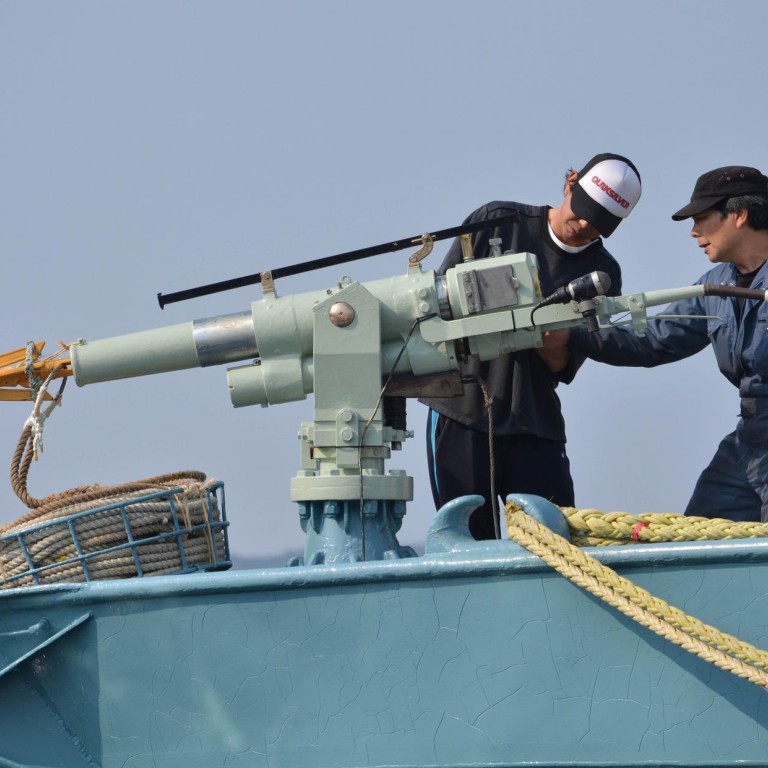
First whaling fleet leaves Japan since UN hunting ban in Antarctic
Hopes that ruling by UN court would end hunting are scuppered as four ships set off from northeast coast amid tight security on 'research' trip
A Japanese whaling fleet left port under tight security yesterday in the first hunt since the UN's top court last month ordered Tokyo to stop killing whales in the Antarctic.
Four ships left the fishing town of Ayukawa in the northeast, marking this season's start to a coastal whaling programme not covered by the International Court of Justice's ruling.
The court found that Japan's Southern Ocean expedition was a commercial activity masquerading as research.
Some observers predicted the Japanese government would use the cover of last month's ruling to abandon what many have long considered the facade of a scientific hunt.
But Tokyo's decision to continue whaling was likely to set off a new battle with critics who had hoped the ruling would bring an end to a slaughter that the Japanese government has embraced as part of the island nation's cultural heritage.
Some Japanese politicians have rejected criticism from abroad as little more than cultural imperialism by the West, while locals in Ayukawa expressed fears the court's decision could ruin their livelihoods.
At about 10.30am local time, whistles sounded as the flotilla accompanied by a trio of coastguard patrol boats set off after a ceremony attended by about 100 local dignitaries and crew.

The town on Japan's northeast coast was ravaged by Japan's 2011 tsunami and still bears the scars of the disaster. Local people say their small community's existence rests heavily on the hunt.
"No matter what the court ruling was, all we can do is let everyone see that we're still hanging in there," said Koji Kato, a 22-year-old crew member.
"People from outside are saying things, but we want them to understand our perspective as much as possible. For me, whaling is more attractive than any other job."
Yuki Inomata, who works in a local whale meat processing factory, said he was glad that the annual hunt got under way despite questions about the future of the industry in Japan.
"I don't know what will happen next, but I hope we can continue whaling," said Inomata.
Tokyo called off the 2014-15 season for its Antarctic hunt, and said it would redesign the controversial whaling mission in a bid to make it more scientific.
But vessels would still go to the icy waters to carry out "non-lethal research", raising the possibility that harpoon ships would return the following year. Tokyo has always maintained that it intended to prove the whale population was large enough to sustain commercial hunting.
The whaling programme in places like Ayukawa is considered part of "research" whaling, but was not targeted at the court battle in The Hague.
Japan extensively hunted whales in the 19th century, when they were a source of fuel and food. But the country's taste for whale meat has considerably diminished in recent decades as it has become richer and has been able to farm more of its protein.
On Tuesday, a new poll showed 60 per cent of Japanese people support the country's whaling programme, but only 14 per cent eat whale meat.
Although not difficult to find in Japan, whale meat is not a regular part of most Japanese people's diet.
However, powerful lobbying forces have ensured Tokyo continues to subsidise the hunt with taxpayers' money.
